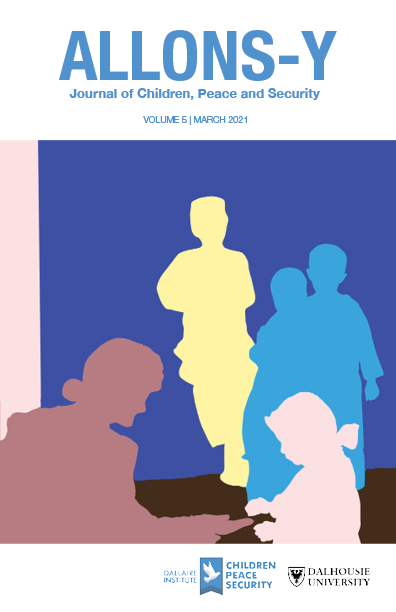Preface: Vancouver and Beyond: Reflection and Revision on Women, Peace and Security
Аннотация
Clare Hutchinson is the NATO Special Representative for Women, Peace and Security
On 31 October 2000, the United Nations Security Council unanimously adopted Resolution 1325 on Women, Peace and Security. For the first time in the history of the United Nations, women's concerns in relation to peace and security were formally discussed and acknowledged within the Security Council. Resolution 1325 recognises the disproportionate and unique impact of armed conflict on women and stresses the need for full participation of women as active agents in peace and security.
Building on the earlier UN Security Council resolutions on Children and Armed Conflict and Protection of Civilians, UNSCR 1325 was revolutionary, bringing to global attention the disproportionate impact of conflict on women and girls.
UNSCR 1325 is a political and operational tool that has changed the conceptualisation of security and reframed the issue of women‘s rights within this space. Its 3 pillars of prevention, protection and participation remain the bedrock of WPS and, as such, demand that all actors recognize the different impact of armed conflict on women and girls is something for which the global community can find concrete remedies with and for women.
As the UN WPS resolutions have evolved[1] and grown in stature and number, so has the recognition that so-called ‘marginal‘ actors such as women are no longer on the periphery. The Women, Peace and Security agenda collectively recognises that women are not only victims in conflict; often subject to heinous brutality and marginalized politically and economically, but they also make up to 30% of combatants in many conflicts and are sometimes actively engaged in terrorist organisations. The role of women in conflict, like that of men, is complex and layered and a gender lens needs to be applied to the entire cycle of conflict without preconceptions.
In November 2017, Canada launched ‘The Vancouver Principles on Peacekeeping and the Prevention of the Recruitment and Use of Child Soldiers‘. The ‘Principles‘ are a set of 17 political commitments focused on child protection in peacekeeping, but also specifically recognise the contribution of women to peacekeeping and the critical roles women can play in the protection of children.
Over the last few years the attention to the lack of women in peace operations has become central. Discussions, initiatives and activities have increased in volume in their focus on gender parity and increasing the number of women, for both uniformed and civilian peacekeepers.
For international organisations, including NATO, this has propelled a call for increased attention to the recruitment and retention of women in national forces, as a basis of operational effectiveness. The UN 2028 target for women serving in military contingents is 15%. Currently, NATO is ahead of the global average, with women making up 12% of NATO forces. However, more needs to be done. NATO‘s strategy has been to encourage our nations to dismantle barriers standing in the way of the full participation of women in the Alliance and national forces. We will continue to push and encourage the deployment of women, not because they are women to match targets, but because they have a right to contribute to the service of their nation and NATO.
We should, however, be cautious about resting the efficacy of the agenda on parity alone. While greater diversity and a broadened skillset can be linked to better decision”making, planning and results - numbers are not enough. It is only in balancing the issues of parity and participation, that equality can be efficiently and effectively actioned.
The Vancouver Principles highlight the ‘distinct and critical roles of both men and women in the protection of children and the prevention of the recruitment and use of child soldiers‘[2]. Yet, we do need to be cautious about making assumptions women are innately suited to protection of children tasks – assumptions that are both inaccurate and dangerously essentialist. Where attention needs to be placed is in the gendering of responses to child protection. To what extent can gender perspectives enhance the political framework on children and armed conflict and the operational response to prevention and protection?
Vancouver Principle 11 provides an important political foundation from which to move forward. As we forge a path towards the next twenty years, we must all continue to do our part, to strengthen both parity and participation, to secure a lasting peace for all.
[1] There are currently ten United Nations Security Council resolutions on WPS, UNSCRS 1325 (2000), 1820 (2008), 1888(2009) 1889 (2009), 1960 (2010), 2106 (2013), 2122 (2013), 2242 (2015), 2467 (2019), 2493 (2019)
[2] The Vancouver Principles on Peacekeeping and the Prevention of the Recruitment and Use of Child Soldiers 2017





